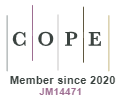Technical report on the journey of BHub startup in a context of application of lean practices
DOI:
https://doi.org/10.5585/iptec.v12i2.25822Keywords:
Lean Startup, Startup Development, Startup, Lean ManagementAbstract
In recent years, Brazil has positioned itself as one of the worst countries in economic performance and business efficiency. In this context of the Brazilian economy, micro and small companies play a vital role, at the same time as they face high mortality rates just a few years after opening. However, the emergence of startups in the country is a parallel movement that has brought life to BHub, a company that positions itself in this environment, providing administrative management services to other startups and small companies. During BHub's few years of existence, it was possible to observe key moments aligned with the so-called Lean, a socio-technical model that aims to develop with the least possible waste. Through document analysis combined with participant observation, the use of Lean practices was identified, such as the creation of value and growth hypotheses, the development of Minimum Value Proposition and the use of pivots, in addition to Lean Manufacturing and Lean practices. Product and Process Development, such as the existence of expert leaders, information centralization rooms, technical documents, leveling mechanisms, problem anticipation and simultaneous engineering. In addition to these main references, they were also brought to this study in order to enrich it, which generated recommendations for the company itself and, eventually, others to reflect on opportunities to improve their respective realities from the point of view of different principles, Lean practices and waste.
Downloads
References
Abstartups - Associação Brasileira de Startups. (2020). Crescimento das startups. Recuperado em mar. 2024 de https://abstartups.com.br/crescimento-das-startups/
Blank, S. (2010). The Four Steps to the Epiphany: Successful Strategies for Products That Win. Palo Alto, California: K & S Ranch Publisher.
Creswell, J. W. (2013). Research Design: Qualitative, Quantitative, and Mixed Methods Approaches. 4. ed. [S.l.]: Sage Publications.
Cusumano, M. A. (1985). The Japanese Automobile Industry: Technology and Management at Nissan and Toyota. Cambridge: Harvard University Press.
Feld & Hathaway. (2020). The startup community way: evolving an entrepreneurial ecosystem. Nova Jersey: Wiley.
Gil, A. C. (2008). Como elaborar projetos de pesquisa. 5. ed. São Paulo: Atlas.
Hoffman, R., & Yeh, C. (2018). Blitzscaling: The Lightning-Fast Path to Building Massively Valuable Companies. London: Harper Collins Publisher.
Liker, J. K. (2005). O modelo Toyota: 14 princípios de gestão do maior fabricante do mundo. Porto Alegre: Bookman.
Liker, J. K., & Morgan, J. (2006). The Toyota Product Development System: Integrating People, Process and Technology. New York: Productivity Press.
Ohno, T. (1997). O sistema Toyota de produção: além da produção em larga escala. Porto Alegre: Bookman.
Osterwalder, A., & Pigneur, Y. (2010). Business Model Generation: a Handbook for Visionaries, Game Changers, and Challengers. Nova Jersey: John Wiley & Sons.
Osterwalder, A., & Pigneur, Y. (2014). Value Proposition Design: How to Create Products and Services Customers Want. Nova Jersey: John Wiley & Sons.
Ries, E. (2012). A startup Enxuta. São Paulo: LeYa.
Ward, A. C. (2007). Lean Product and Process Development. Cambridge, MA: Lean Enterprise Institute Inc.
Ward, A. C., & Sobek, D. K. (2014). Lean Product and Process Development. Cambridge, MA: Lean Enterprise Institute Inc.
Womack, J. P., & Jones, D. T. (1996). Lean Thinking. New York: Simon & Schuster.
Womack, J., Jones, D., & Ross, D. (2004). A máquina que mudou o mundo. Rio de Janeiro: Campus.
Downloads
Published
How to Cite
Issue
Section
License
Copyright (c) 2024 Paulo Henrique Bezerra de Campos, Alvair Silveira Torres Junior

This work is licensed under a Creative Commons Attribution-NonCommercial-ShareAlike 4.0 International License.






